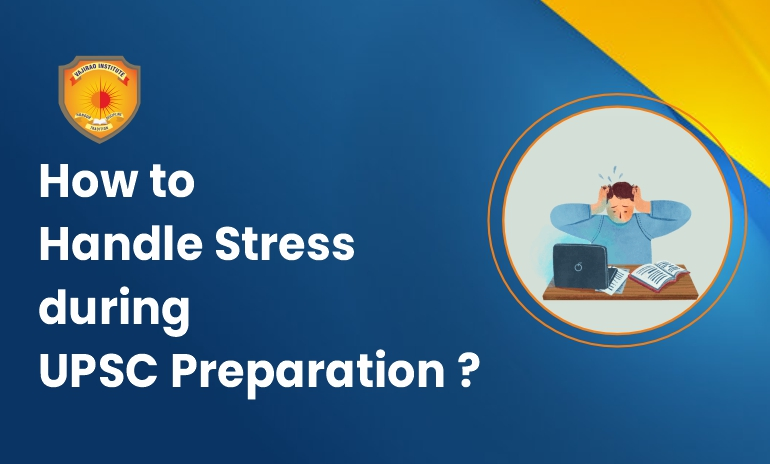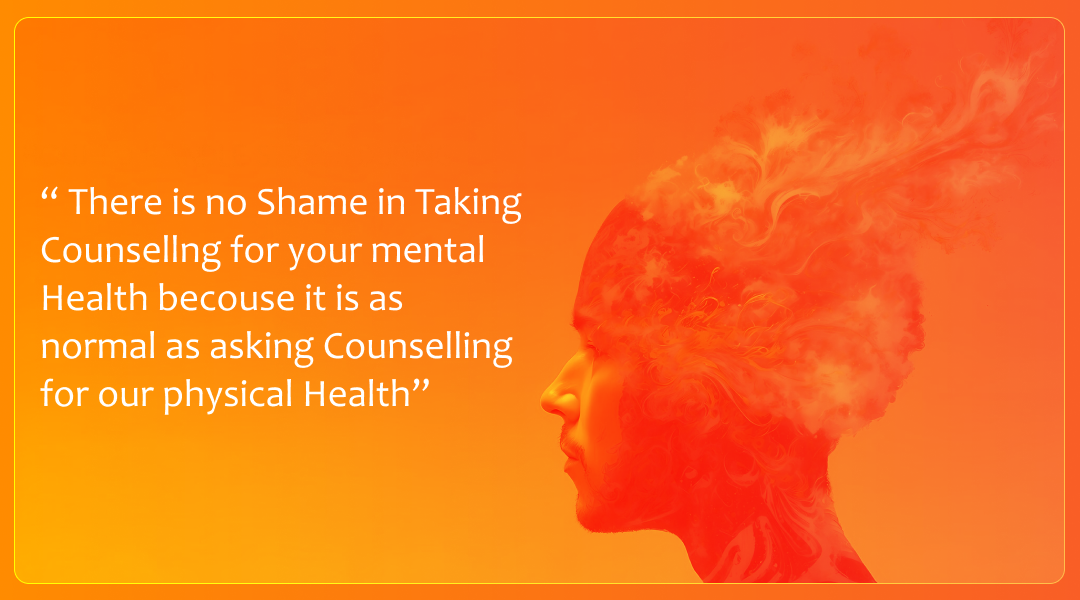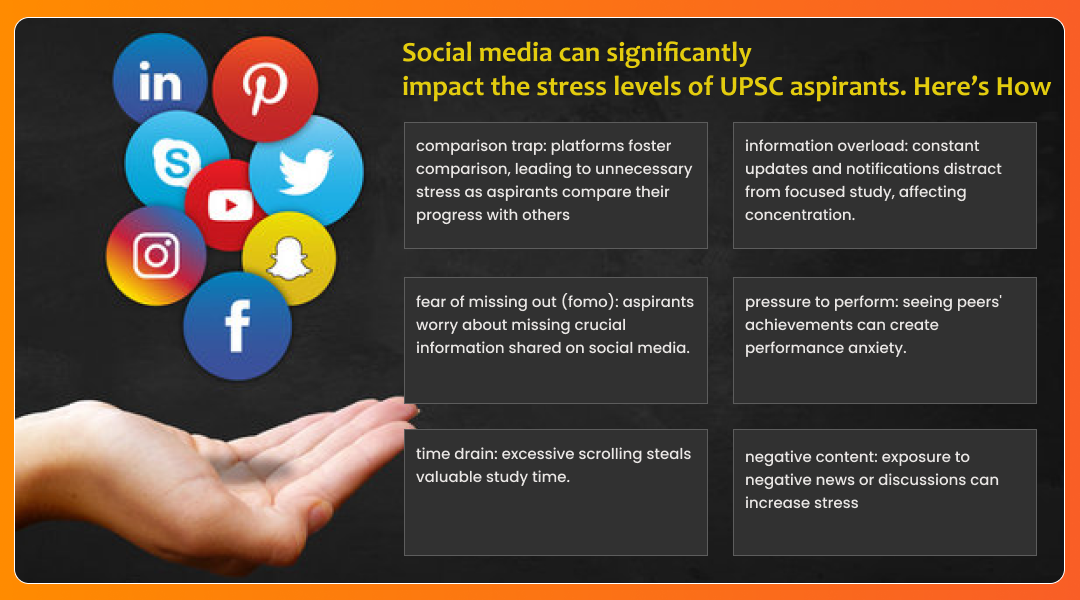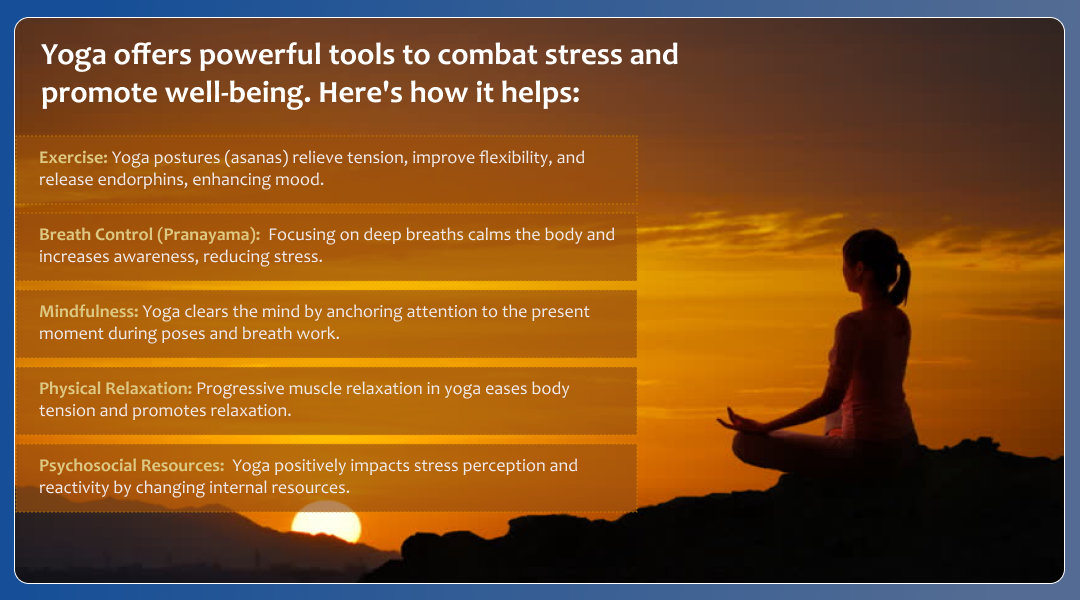
UPSC CSE is considered as the one of the most difficult exam in India. Aspirants who seek to achieve higher governmental offices
like the IAS, IPS, and IFS undertake this hard examination. The UPSC CSE can be divided into the following steps: Preliminary Exam, Main Exam, and the
Interview/exam also referred to as the Personality Test. The extensive course plan encompasses topics such as historical, geographical, political, economics,
scientific, and issues of contemporary reality. This makes the exam challenging together with the pressure associated with the competition making adequate
pressure on the aspirants. Here’s why it can be stressful:
- Fear of Failure: To achieve this, aspirants needs time and energy in preparing for the exams. A constant reminder of the unmet expectations is the very reason why they are terrified of failing to clear the exam. This can lead to stressful situations.
- High Expectations: One can feel an immense pressure from family, peers and the society in general. These expectations put pressure on Aspirants and what is more important, inflict harm upon one’s psychological state and mental health.
- Uncertainty: From the student’s point of view, the fact that the pattern, cut off marks and the difficulty level of the questions becomes quite unpredictable, makes studying even more stressful. They are forced to innovate and change those strategies in order to provide a competitive challenge.
- Vast Syllabus: Teachers insist that covering a large syllabus should be well planned and engineered by dedicating ample time. One of the problems is that one can experience anxiety resulting from the feeling that there is something important one should read.
- Time Constraints: Time management is an important factor aspirants have to consider in their preparation process. Combined with the management of work on several subjects, the revision process and mock tests become a challenge.
- Isolation: This process is a rather lonely process and it uncovers such negative feelings as loneliness and isolation. Candidates have no time to laugh or engage in any fun activities since they are all involved in bookish activities.
- Health Impact: This is because stress has been known to impact the health of an individual through damaging the bodies tissues, leading to hypertension, heart diseases and other related disorders, not forgetting that stress reacts with the immune cells of the human body and thus causes them to malfunction.
In this part we will discuss the process and the importance of stress management during the preparation of UPSC (Union Public Service Commission) CSE. Students face a lot of stress as a result of the pressure towards achieving high grades, the large curriculum to be covered and competition.
It may be caused due to following reasons:
- Absence of a Well-Structured Study Plan: Failure to have a well-elaborated study plan or falling short of sticking to the laid down plans induces anxiety.
- Balancing Work or Other Life Events: Being a job holder and an aspirant for UPSC can prove to be slightly daunting. Imbalance can increase stress.
- Change in Living Environment: It is quite discomforting to leave home and move to a new dwelling place surrounded by books and full of people all preparing for the same and knowing that they all are your competition can cause anxity.
- Constant Self-Comparison: Here competition arises because everyone does benchmarking with other fellow aspirants, and the situation leads to poor morale, anxiety, and even stress.
- Uncertainty and Fear of Failure: This fear includes but is not limited to fear of not passing the exam or failing in general.
To overcome above:
- Develop a reliable timetable that would subdivide the number of hours available in a day between the different subjects, revision and the practice tests.
- It is important that you assign certain study hours to these and organize them based on their importance. Consult your employer on the preparation requirements that they wish to be put in place.
- Arrange the atmosphere of your new location in a manner that supports learning effectively. Make it warm and neat.
- Try to pin your hope on the progress and do not stress upon the differences much.
- Develop a strong positive attitude towards own self and self-development. Being aware of the fact that plunges are only inevitable stages in the initiation process.
Here are some further Tips that will help you to overcome stress during UPSC preparation.
Stress managements become difficult for the UPSC aspirants because of lots of the reasons. And knowing the nature of exam is one requires a good mental health ass well hard work. Stress comes from pressure to perform well, the comprehensive content to be covered and competitiveness can affect the students’ psychological and emotional well-being. Below are some stress busters:
Establish a Realistic Study Routine:
- Building a neat study schedule tremendously assist in rattling the sense that the preparations are in your hands.
- Study for short intervals, then take a break.
- This technique helps to refocus and get better results.
- To make an routine one should consider these :
- Know the Syllabus: Beginning with UPSC CSE syllabi, you should make sure that you comprehend the whole material.
- Set Realistic Goals: Be realistic and go for feasible goals. In this case, you can segment your preparedness in terms of sections or topics of specific disciplines for a given period of time.
- Time Management: Ensure to sets specific time of the day solely to engage in studying. Actually, when studying materials, it is also effective to divide the studying process.
- Build a Strong Foundation: This is an area that needs extensive knowledge about UPSC. Eliminate recapitulation of meanings in pairs and triads, and reiterate the idea that the content of classes should be memorized as concepts.
- Take Note-Making Seriously: You should take brief notes when reading. Reword key concepts with stated data and pertinent illustrations.
- Stay Updated with Current Affairs: It shall be the responsibility of the subject to monitor national and international events. Watch and listen to news on television and radio and read newspapers, magazines, and trustworthy websites.
Practice Mindfulness and Meditation:
- As you carry out your day to day activities, ensure you run agendas such as mindfulness and meditation.
- From this context, one can deduce that mindfulness can effectively reduce the levels of anxiety in people and make them feel focused and healthy.
- Here are points on how meditation helps overcome stress:
- Calming Effect: This has the great impact on one’s emotional health because it makes feel relaxed and full of positive energy.
- Reducing Negative Sensations: Secondly, by the time you indulge in mediating, it is important to note that you learn how to disregard negative feelings of stress and anxiety.
- Enhancing Self-Regulation: It is established that agreements strengthen deep thinking and reduce impulses of a stressing character.
Maintain a Balanced Diet:
- Nutrition assists in avoiding and quantitatively diminishing stress; thus, stress is really avoidable.
- Ideally, attempt to become a label reader to keep your diet consisting of many fruits and vegetables seasoned, whole grains, and an abundance of water.Stress management is essential and is greatly contributed to by the kind of food that one takes. Here’s how it helps:
- Stabilizes Blood Sugar: Daily energy levels do not fluctuate and this helps in avoiding cases of stress.
- Enhances Brain Function: launch which roles in the improvement of brain health include omega-3 fatty acids.
- Boosts Immune System: It is mandatory that we feed our bodies in the right manner especially because this will enhance the body’s immune system against several stressors.
- Maintains Energy Levels: Regularity and correct nutrition at the right time help to avoid tiredness throughout the day and become a powerful source for the body.
- Reduces Inflammation: Stress responses are reduced by populating the bodies with anti-inflammatory foods.
- Promotes Overall Health: A balanced diet hence serves as a backup for performance for both the physical and the mental abilities.
Take Breaks:
- Do not be into your books for long time periods.
- Don’t be on the chair all time. Get some walks
- One should take breaks time to time to recharge energy.
- Does some exercise stretch your legs or listen to some soft music.
Connect with Peers and Mentors:
- Having peers and mentors to get advice from can be very beneficial when experiencing such hardships.
- Engage the competitors; make friends with the other aspersing hopefuls, join the study groups, and forums, where they are found.
- They are all advocacy based and share feelings of those involved, tell stories, concentrate on support given to each other.
Seek Professional Help When Needed:
- When the situation gets tough, one should not hesitate to consult a professional person.
- If the stressor is becoming intolerable, then one should go to get help for counselling.
- Physician and counsellor may prescribe on how to handle stress and what to do while other people can encourage you.

Limit Social Media Exposure:
- Despite the fact that the literal meaning of the term is expressed by the phrase ‘get the word,’ it is possible to conclude that constant use of social networks cause stress.
- It is possible to introduce some restrictions and timeframes regarding the application of social networks.
- Do get too much involved.
- Try to stay away from the social media as much as possible.
- If still want to use it try not to get affected by it, if it starts affecting you just shut it down and listen some music.

Regular Exercise and Yoga
Elements of Yoga provide a great dealing point for stress as well as other negative impacts on the human body. Here’s how it helps:
- Yoga postures (asanas) relax muscles and joints, stretch the body and stimulate production of endorphins making an individual happier.
- When the Aspirants concentrates on the process of breathing, the physical and mental state become relaxed, decreasing anxiety.
- Yoga also helps in this way through positive effects; during the asanas and pranayama the attention in focused on the present.
- Relaxation of the muscles progressively is a feature in yoga with a main aim of reducing tension within the body.
- Yoga works for stress perception and reactivity by altering internal resource.
- Practice decreases the levels of stress hormones and increases the number of variations in heart rhythm
